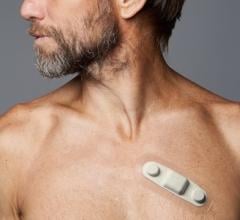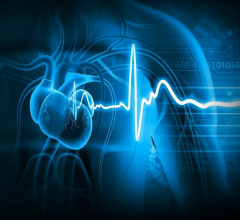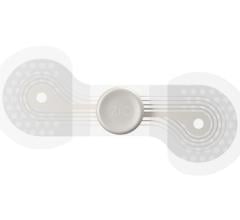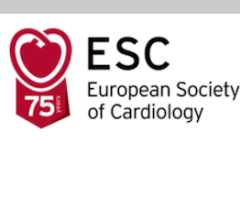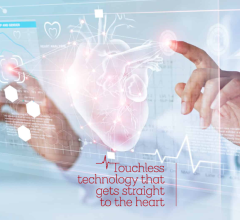The Apple Watch is being used to help identify and track Afib in the general population.
Atrial fibrillation, or Afib, kills about 130,000 people worldwide every year. It also affects 3 to 6 million people in the United States alone and is a leading factor in prolonged hospital stays, according to the Centers for Disease Control and Prevention.
It also is one heart condition that can be diagnosed using a single-lead electrocardiogram (ECG) device. There are now several types of single-lead wearable ECG monitors available on the market.
When Apple entered the fray to detect Afib with its single-lead device – the Apple Watch – many people looked to me for my reaction, expecting something like, “Oh, terrific, here comes Apple, moving in on the territory I’ve built a career on within GE Healthcare.”
Apple is the leader in wearables and wants to keep it that way, so its strategy is to increase the usefulness of its Apple Watch by adding more functionality. Tim Cook has also publicly announced his intent that “Apple’s greatest contribution to mankind will be about health.”
For more than four decades, we at GE Healthcare have been in the field of early detection and diagnosis of heart problems, ranging from coronary artery disease (including ischemia and myocardial infarction), sudden cardiac death (SCD), Afib and more.
During this time, we have built up expertise in the automated interpretation of ECGs, a critical test in any diagnosis of heart disease. Our algorithms – led by our flagship 12-lead algorithm (12SL) – provide information to a clinician with a high level of accuracy.
So, certainly, you can guess my response to the news of the Apple Watch and Stanford heart study.
Incredulity, right?
Disdain, of course?
Fear, no doubt?
Hardly. I welcome more and more players in wearables. Today’s patient is better informed and needs to be better empowered to make his or her health decisions alongside clinicians, and wearables play a critical role.
The buzz about Apple Watch and Stanford caused a renewed interest in wearables and their application in home health care, which is good for the industry as it improves awareness not only for wearables but for heart disease vigilance.
In fact, the Apple Heart study found Afib in 0.5 percent of the population, with about an 84 percent specificity, which is the ability of the test to correctly identify those without the disease.
It is worth noting that the specificity of our FDA-cleared algorithm – EK12 – for Afib is about 98 percent, as is documented in the Physician’s Guide for EK12.
A specificity of 84 percent means that 16 percent of the normal population will be identified as having the disease, which is significant in terms of the number of false calls.
Overcoming a Tsunami of Healthcare Data
Ultimately all medical devices and solutions must satisfy the clinicians, who are accountable to patients. One of clinicians’ greatest pain points is “Data Deluge.” We must manage and triage that data because wearables will continue to generate false positives that will need to be vetted and interpreted. We at GE Healthcare are best positioned to do that, given our high level of specificity.
To make sure we can have an impact in the new world of wearables and digital health, GE Healthcare took some key steps three years ago.
We made the strategic decision to find partners to work with in digital solutions to give us greater speed to market. In January 2019, we launched Ambulatory Suite at Arab Health in UAE, and it is available commercially today in the United States. The suite is a solution to detect Afib, using patch-based ECG devices (the same kind used to confirm the Apple Watch ECG for Afib in the Apple Heart study) for patients at home under the care of a prescribing clinician.
What makes our solution unique is that it is completely integrated with MUSE, our ECG ecosystem that we constantly enhance; we just added 24/7 continuous ECGs (MCT), event monitors and short-term and long-term Holter services that are orderable through MUSE with reports coming back to MUSE. Thanks to our Ambulatory Suite, for the first time, a clinician can get one longitudinal view of the ECG – whether taken at home or in the clinic or hospital – which can help in better diagnosis and decisions within the care pathway.
What is more, we aim to make all our solutions open; MUSE connects to all kinds of systems – whether or not made by GE Healthcare, and the user can take in and display ECGs regardless of which device they originated on. The MUSE is the gateway to all ECGs at home connecting it back with ECGs in the hospital. MUSE is also available through the EMRs today – look at the Epic App Orchard.
As an industry with a growing consumerism component, healthcare needs all the players to come together to create a workflow that connects data from consumer devices and medical devices. This will create the ecosystem that will allow clinicians to gain the right information and insights to treat patients well and on-time.
On behalf of GE Healthcare, I invite all medical and consumer device players to work together to build a better health care future for us all.
Editor’s note: Ashutosh Banerjee is global business head of GE Healthcare’s diagnostic cardiology business. Prior to joining GE, he was the national sales head for infection prevention business at Johnson & Johnson Medical. He also has experience with IT hardware and medical devices.


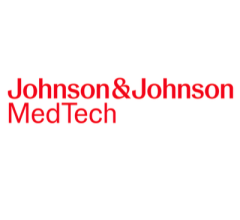
 December 19, 2025
December 19, 2025 
